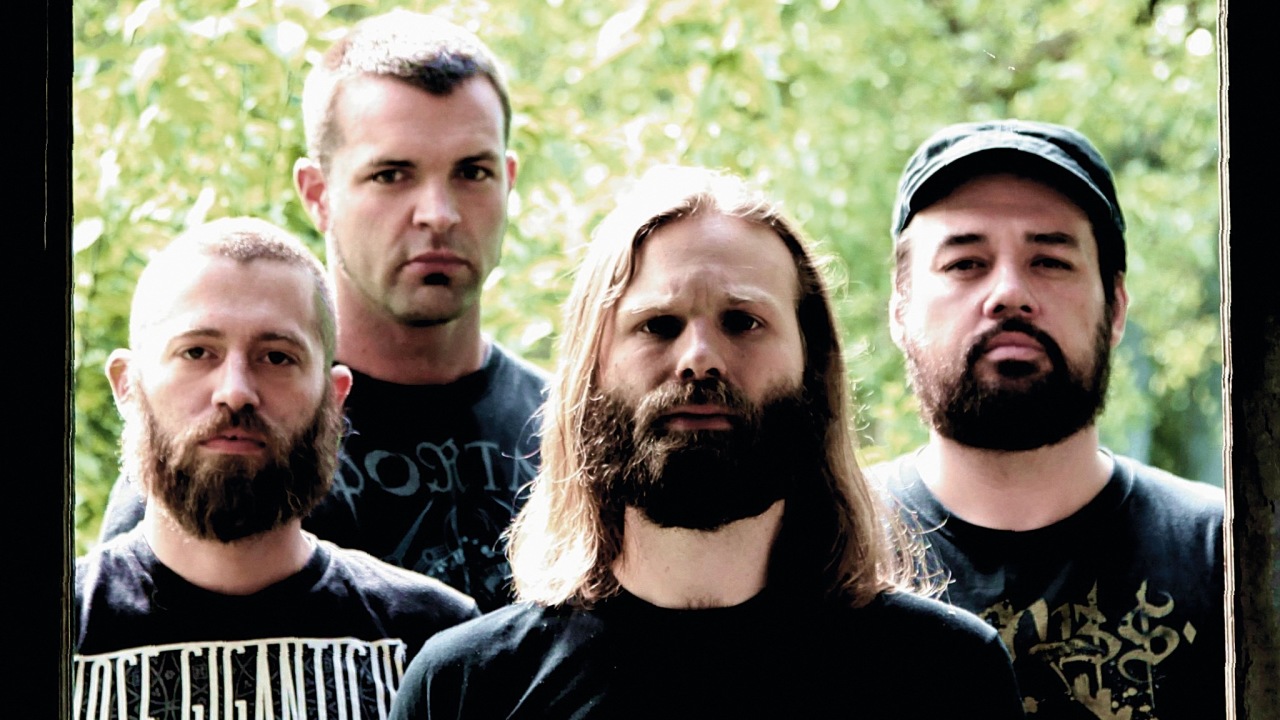Some start with piano lessons, others with a ropey acoustic, and then there are those who prefer tennis rackets. “I made a cardboard front of a guitar, painted it and taped that to my tennis racket,” Matt Page remembers of his musical beginnings. “And me and five kids from the neighbourhood had a ‘band’ and we’d get in our rooms and jump around ‘performing’ entire mixtapes of Van Halen, Poison... If that’s not an indication that I maybe wanted to be in a band, then I don’t know what is!”
Things have changed a little since. Art professor at the University of Kentucky by day, DTES vocalist/guitarist by night, Page and his band (formed in 2009) deal in heady swathes of modern yet rich, melodic progressive rock on new LP Heretics, teaming Radiohead-meets-Bruce Soord vocals with Floydian guitar. Plus a sprawling concept, channelling the collective spirit of Virginia Woolf, Emily Dickinson and other feminist figures depicted on the album cover, sparked off by Page’s admiration for the feminist art movement of the last century.
“I wanted to find some way to participate in the production of that paradigm, and try to take that story and maybe move it into an area where it isn’t as well-known,” Matt says of the concept.
Heretics tells the story of Elizabeth – DTES’ fictional protagonist and suffragette, caught between domestic and aspirational worlds. In full, it’s a pretty complex narrative, evolving into wider notions of idealism and hope for the future, but one that Page hopes people can integrate into their own lives. “That was one of the challenges that I sort of set for myself when writing the album,” he tells us. “Can you take historical moments, can you take these fairly complex ideas and can you illustrate them conceptually on an album? I think those themes resonate even if the narrative is more specific.”
If these all sound like rather academic foundations for a rock record, don’t let them deter you. Drawing from tastes that span Rush, black metal, Genesis and Joni Mitchell, among others, DTES create an engaging fusion – one that leaves breathing space amid epic soundscapes. “This’ll sound weird, but if I could beautifully write a whole album about somebody living a mundane day in their life, that would be a real success,” Page muses. “I have an interest in those small moments, but the music itself sort of surrounds that with these larger-than-life tones and qualities. So I try to find that personal quiet within the storm.”
Experience of working, as a grad student, with feminist artist Faith Wilding added to Page’s influences. “My wife is just now working with her also,” Page tells us. “She came back to our house recently and we just spent three days drinking whisky and talking about art! So it’s hard not to have that stuff breathe through into your albums.”
Page is a wordy, academic soul, and yet there’s something very charming in his lively curiosity about progressive rock – reflected in Too prog, or not too prog. Is that the question?, an essay he’s written about the nature of 21st-century prog. And maybe it’s this curiosity, coupled with considered songcraft, that makes DTES such a lavish but fresh prospect.
“Music is very primal,” he enthuses, “it’s almost a religious thing that happens to our brains, that other art forms just don’t do.”

